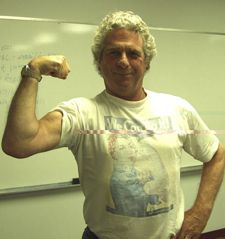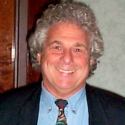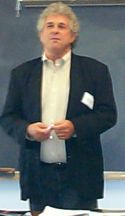Professor Stephen M. Smith
Stephen Morgan Smith, 60, of 13 West Diane Drive, Keene, died Tuesday, Oct. 9, 2007, at Cheshire Medical Center/Dartmouth Hitchcock Keene from complications related to Amyotrophic Lateral Sclerosis (ALS).
Mr. Smith was born Feb. 19, 1947, in Providence, R.I., the son of Dorothy M. and E. Stuart Smith. He graduated from North Attleboro (Mass.) High School and earned his Bachelor of Arts in English from the University of New Hampshire. He earned his master’s and doctoral degrees in education from the University of Massachusetts and a master’s degree in business administration from UNH.
He was the husband of Karen (Leonardson) Smith. They were married for 39 years.
For the past 10 years he was a professor in the graduate business program of Franklin Pierce University. He previously served as a professor for 23 years in the education and counseling departments at Keene State College. In 1977 he received the Keene State College Distinguished Teaching Award.
He’s not biding his time. Franklin Pierce College
business professor forms a business to pay for care
By DAN GEARINO for SentinelSource, January 27, 2003
When Stephen M. Smith of Keene learned he was dying, he decided to start a business.
The choice might seem odd, unless you know Smith, say friends. Nicknamed “Hurricane,” the 55-year-old Franklin Pierce College business professor has a way of responding to adversity with a plan of attack, a grin and an off-color joke.
In this case, the foe is amyotrophic lateral sclerosis, ALS, also called Lou Gehrig’s
disease. About 30,000 people have the disease nationwide.
Smith was diagnosed this summer after he noticed he was slurring words. He was told to expect three or four years of growing paralysis, then death, as the disease attacks nerve cells in his brain and spinal cord.
Within months, Smith and friends founded the Stephen “Hurricane” Smith Fund Inc., a nonprofit company that mixes multi-level marketing with charitable giving — Amway meets United Way.
Using an extended network of volunteer fund-raisers, the business seeks to raise $200,000 for Smith’s care. Then, after Smith dies, the plan is to keep raising money for ALS research.
“It’s a very innovative idea,” said Dr. Jeffrey A. Cohen, the neurologist who treats Smith at Dartmouth-Hitchcock Medical Center in Lebanon. “Have I seen anything like this? Not quite.”
Smith hopes the fund can help change the way people deal with the financial and
emotional toll of terminal illness. And he hopes it will help him keep his mind and body busy right up to the end.
Friday afternoon, Smith sat in his basement home office, reading e-mail while catching bits of CNBC on the nearby television. He has a Peter Pan figurine mounted on his computer monitor overlooking the stacks of books, magazines and family photographs.
“I’m trying to do as much as I can, while I can,” he said.
Right now, Smith is doing much more than teaching and managing his new organization. He’s also a consultant to a fish-farm venture in Michigan, and is working with a partner to start a massive hydroponics greenhouse in Iowa.
Also, there’s family. He’s been married for 35 years to Karen, who works at a Keene consignment shop. They have a grown son and a grandchild who live in Northampton, Mass., and a grown daughter in Providence, R.I.
“It’s hard for them to understand that I have a fatal disease,” Smith said about his family, “because I still get up every morning and take a shower.”
Other than the slight slurring of his words and a loss of some dexterity, Smith seems healthy and plans to continue working for as long as possible.
This makes it all the more jarring when he describes all the changes planned for the house: Doorways must be widened, an elevator or chairlift will be installed, and a handicapped-accessible bathroom and shower will be built.
The house renovation, along with the purchase of a handicapped-accessible van, account for most of the $200,000 in planned expenses that won’t be covered by health insurance or the family’s expected income.
“I approach everything like it’s just another challenge,” he said. “Of course, this one happens to be on the bummer side of the spectrum.”
‘His speech was off’
Smith decided in September to tell his students about the diagnosis, though several of them, such as Denise Mayfield of Swanzey, could already tell something was wrong.
“I thought at first he had a very bad cold, because his speech was off,” she said. “Then it never got better.”
Mayfield, the parent of two teenagers, took evening graduate classes at Franklin Pierce’s Keene campus while working a full-time day job as a sales representative. She graduated in December with a master’s in business administration.
Many of her classmates were also midcareer professionals, and Smith’s teaching style resonated with them, she said, describing him as energetic, funny and sensitive to their needs.
Mayfield wanted to find ways to help, and her efforts became part of the inspiration for the nonprofit agency.
She started by participating in Ellen’s Walk, a fund-raiser held Nov. 10 for Ellen Corindia Kaatz, a Sullivan native who has ALS. Organizers of the walk allowed Mayfield and several others to use the walk to raise money for Smith, and they ended up with about $1,200.
“I told Steve, (the walk) isn’t the end of this. We’ll do more,” Mayfield said.
They batted around ideas for a few weeks, then zeroed in on a plan: an organization dedicated to motivating and organizing the fund-raising efforts of hundreds of people.
“It’s not just a mass of people saying, ‘Oh (bleep), I’ll send 10 bucks,'” Smith said. “It’s people using their business skills and their marketing skills.”
To begin, he made a list of his friends and family. His teaching colleagues alone numbered in the dozens. He teaches at three Franklin Pierce locations — Keene, Concord and Lebanon. And, before starting at Franklin Pierce five years ago, he taught for more than two decades in the education department at Keene State College.
After teaching contacts, he had names of relatives and partners from business projects.
He even went back to friends from his various stints as a student, from his undergraduate days at the University of New Hampshire in the 1960s and his doctoral studies in education at the University of Massachusetts at Amherst in the 1970s, to his master’s studies in business administration from UNH in the 1980s.
About 100 of the people on the list volunteered for the effort. Each is responsible for raising at least $2,000. This might mean five people hosting a dinner that raises $10,000, or it might mean one person writing a check. Over time, organizers plan for the group of 100 to grow, along with the amount of money raised by each person.
Recruiting people has been easy, said Andrea M. Brode, director of Franklin Pierce’s Keene campus, and, along with Mayfield, the co-treasurer of the company.
“You really don’t need to ask people,” Brode said. “You just say, ‘Steve is sick,’ and they tell you how they are going to help.”
Most of the work these days is on marketing and organization. Less than $5,000 has been raised.
One of the most prominent marketing tools is a Web site, www.stephenhurricanesmithfund.org. The site includes facts about ALS, contact
information and a biographical snapshot of Smith.
As explained on the site, the Hurricane nickname started during Smith’s Keene State days. A student asked what Smith preferred to be called, expecting “Mr. Smith” or “Dr. Smith.” In a random choice, Smith said he wanted to be called “Hurricane Smith” and the name stuck.
Long-term goals
Plans are still coming together for the company’s projects after Smith’s death.
The early talk is to have some mixture of two missions: one, broadening the fund-raising network to help other individual ALS patients; and two, donating money to the Northeast ALS Consortium, a group of hospitals — including Dartmouth-Hitchcock in Lebanon — working for better ALS treatment.
Cohen, the Dartmouth-Hitchcock neurologist, has gotten to know Smith, and is impressed with the fund-raising idea.
“Steve is a very intelligent and very motivated person,” Cohen said. “He’s really taken his intelligence and enthusiasm and turned this into something positive.”
The push for an ALS breakthrough has yielded few results, including no answer to what causes the disease.
“There hasn’t been a home run,” Cohen said. Stem-cell research holds some promise, though Cohen said it’s too early to predict any new treatment.
Barring a breakthrough, Smith has pretty much accepted that he has only a few years left. With a grin, he said this wasn’t the way he expected to go.
“I always thought I would die racing to save an infant, passing it to the mother as a truck runs me over.”
My experience with Steve was limited to Founder’s Day 2006 when we presented him the check from Betapalooza, but that one day made a lasting impression. I had never seen courage personified in a person like that, but Steve possessed such a charisma that was evident through his entire persona. I was moved to tears with that entire moment, which I didn’t think was something possible, but it is one of the memories that will stay with me always as a Beta brother.
For all of the good times, that day reminded me that being a part of this fraternity does not end after 4 years and we come to the aid of any Beta brother, regardless of the situation. In my years at the house, I had never felt such a closer sense of family with a room full of men than I did right then.
I consider myself so fortunate to have shared in that moment that day, and I want to thank Steve for honoring all of us with his bravery in the face of adversity and teaching us how to live. You will be missed, Steve.
-Former Sigma Beta President Sean Delahunt ’07


